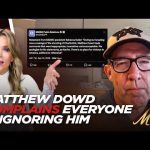ABC quietly reversed course on Tuesday, announcing that Jimmy Kimmel will be back on the air after an “indefinite” suspension that lasted less than a week. The network said it reached the decision after what it called “thoughtful conversations” with Kimmel, a move that will look to many like a corporate face‑save rather than a principled stand.
The suspension came after Kimmel’s on‑air remarks about the September 10, 2025 assassination of conservative activist Charlie Kirk, comments that many Americans found not only tasteless but politically charged at a delicate moment. Networks and commentators on both sides debated whether the monologue crossed a line between sharp satire and reckless politicization of a tragedy.
Local station owners moved quickly: Nexstar and other affiliates pulled the show from their lineups, and Sinclair has said it will not carry Kimmel’s program even after ABC’s reversal. That kind of pushback from station groups is exactly what happens when networks prioritize Hollywood elites over the values of local communities.
Worse still, this whole episode featured the unmistakable shadow of federal pressure, with FCC Chairman Brendan Carr publicly threatening action if networks did not discipline the host. That kind of jawboning from a regulator about speech on television sets a dangerous precedent — weaponizing government power to police opinion is not how a free nation operates.
Let’s be clear: Kimmel’s comments were offensive to many Americans and deserve criticism; nobody is arguing elite comedians should be above accountability. But the proper remedy is marketplace judgment and advertiser consequences, not a corporate sprint to cower in front of regulators and political pressure. The flip‑flop by ABC looks less like leadership and more like panic management when the suits smelled trouble.
This incident isn’t isolated. We’re watching a pattern where broadcast companies, big tech, and regulators act together to bend cultural standards toward a coastal monoculture while local station owners and viewers are left holding the bill. Conservatives should celebrate the stations that stood their ground and keep pressing for editorial independence and protections against regulatory intimidation.
If Americans care about free speech and fair treatment, now is the time to speak up — call out tasteless attacks from media elites, demand accountability from advertisers that bankroll partisan monologues, and push for limits on any regulator who thinks it can punish disfavored viewpoints. Defending the First Amendment means defending the right to criticize and the right to disagree, even with a host who sometimes abuses his platform.




